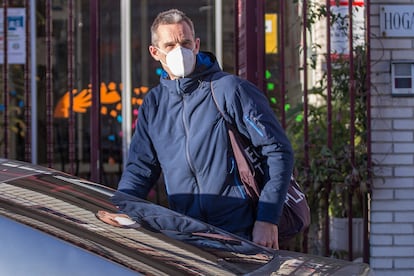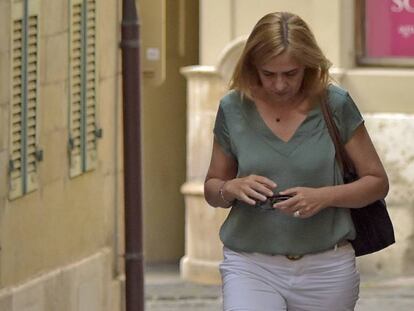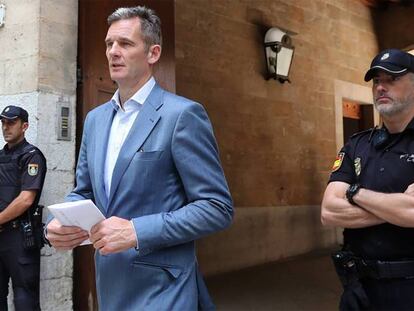Spanish king’s brother-in-law granted open prison regime
The decision means Iñaki Urdangarin, who was sentenced to five years for embezzlement, will only have to spend the nights of Monday through Thursday in jail


Iñaki Urdangarin, the brother-in-law of Spain’s King Felipe VI, was granted permission on Wednesday to move to Spain’s tercer grado, or Grade 3 prison regime. Under this flexible system, convicts are allowed day release and spend only the nights of Monday through Thursday in prison.
Up until now, Urdangarin was only allowed to leave prison one weekend a month. The former Olympic handball medalist will also be allowed 36 leave days a year, up from 24. More importantly, from May 1, 2022, Urdangarin will be able to request early release, after completing two-thirds of his sentence. The public prosecution has announced that it will not appeal the court’s decision, meaning the ruling is final.
Urdangarin, who is married to the king’s sister Cristina de Borbón, is serving a five-year, 10-month prison sentence for his involvement in a scandal known as the Nóos case. He was found guilty by the Spanish courts of tax fraud, embezzlement and influence peddling, and entered a prison in Brieva (Ávila) on June 18, 2018.
The decision means Urdangarin will be able to request early release in May 2022
In exchange for the open prison regime, the penitentiary court of Castilla y León ruled that Urdangarin must continue his work at the Hogar Don Orione center for people with disabilities in the Madrid municipality of Pozuelo de Alarcón, and participate in a new rehabilitation program for inmates convicted of financial crimes – a demand made by both the Interior Ministry and the public prosecution.
As part of the program, Urdangarin must take part in 32 group sessions and complete six therapy units with the support of a psychologist. These units cover issues such as self-esteem, emotions, value systems and responsibility. To complete the program, which is scheduled to last between 10 and 11 months, Urdangarin must sit down face-to-face with someone who has suffered as a result of his actions.
The court’s decision on Wednesday overturns a resolution made by Penitentiary Institutions, a department of the Interior Ministry with authority over prisons, rejecting Urdangarin’s request to be moved to a Grade 3 prison regime; instead, this agency decided that he should remain in the more restrictive Grade 2. Urdangarin was, however, granted the benefits of article 100.2 of the Penitentiary Regulations, which enables inmates to go to work or care for dependents. Following this decision, Urdangarin was moved from Brieva prison to a cell in a Social Reinsertion Center (CIS).
Judge Florencio de Marcos also criticized Penitentiary Institutions for having dismissed Urdangarin’s request for Grade 3 status with nothing more than “a 17-word paragraph, counting articles, conjunctions and determiners.” The judge described this reasoning as being “phrased in such a general way that it could apply to any inmate.” De Marcos said that this “bad habit” is “a regular occurrence” and that it violates inmates’ fundamental rights, such as the right to a defense.
He also noted that Urdangarin’s former business partner, Diego Torres, is already on Grade 3. “The application of the law must be the same for everyone in the absence of a well-founded and reasonable justification,” said the judge.
Nóos graft case
English version by Melissa Kitson.









































